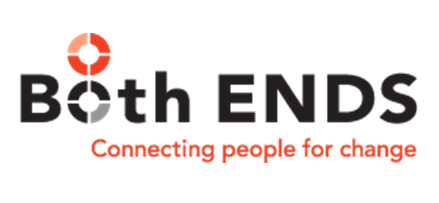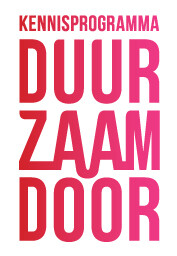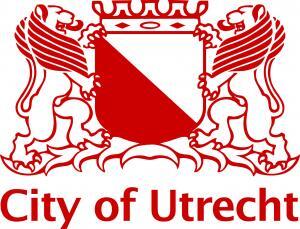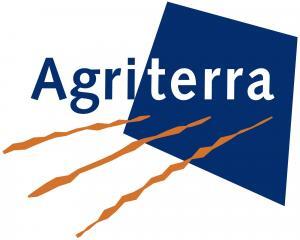At the 2017 Biennial Conference, special attention will be paid to the Practitioners’ Labs. The Practitioners’ Labs are sessions at which expert practitioners on the commons can set their everyday experiences and challenges on the commons into the spotlight and are the opportunity par excellence to have these experiences and challenges discussed by both fellow-practitioners and academics working on these issues.
Underneath you will find an overview of pre-composed Practitioners’ Labs, organized by our sponsors and supporters. In addition, a wide variety of other practitioners’ labs will be scheduled, based on proposals submitted by practitioners from all over the world.
687 | Reimagining the Future of Food, Capital and Community. Towards a transparent, sustainable and closed-loop production model |
 | In this practitioners’ lab the negative impact of the current global agriculture and food systems on the environment and the well-being of both producers and consumers will be central. Policy-makers, researchers and consumers alike are increasingly recognizing the need for a more sustainable agro-food system, and provide innovative organizational models to change the agro-food supply chain. The co-creation model that will be – among others – be explained during this session and has been implemented by some Dutch cooperative supermarkets, like Lazuur-Wageningen, focuses on the design of a closed-loop and a transparent financing system to facilitate the provision of capital to small-scale food producers worldwide, for sustainability investments. Besides, the model aims to unlock the potential of large-scale capital funds to contribute to sustainable food production and consumption. The organizers of this lab invite contributions that focus in particular on (1) types of alternative agreements retailers (such as supermarkets) elsewhere maintain with their suppliers and how these could be improved; (2) how sustainable governance mechanisms, in particular Participatory Guarantee Systems could complement the co-creation model; (3) how to organize the producer-side of the co-creation model; (4) how the development towards new pension and other insurance fund models like pension in kind (guaranteed access to food) can contribute on the consumer side.
> Contribute to this Practitioners' Lab, use code 687 |
689 | The role of emerging regional sustainability networks for local initiatives |
 | In this practitioners’ lab we focus on the development of supporting structures for regional sustainability networks. These rapidly emerging networks provide the combined impetus needed for sustainable regional development. Within these networks local and regional governments, entrepreneurs, educational institutes, research & development centers and community organizations cooperate in different combinations. The participants seek to find sustainable solutions for economic and social issues by making new connections, learning from each other and developing different forms of social innovation. E.g. by creating cooperative forms of governance in a certain area. These networks are gaining more and more power. A new infrastructure is developing next to the existing political and administrative ‘governance’ structures. The question is: can both structures co-exist and complement each other? Other questions are: which organizational model fits the best in a certain area and how can you create a viable model that is financially successful. On DuurzaamDoor: In the past four years the DuurzaamDoor-program of the Ministry of Economic Affairs, in full cooperation with the twelve provinces in the Netherlands, has contributed largely to the development of these new regional networks. By bringing them together in national and regional meetings, by exchanging experiences, by promoting the networks in media, publications, linking regional networks with sustainability scientists and by financing research in order to find solutions for certain financial barriers. In 2017 a new DuurzaamDoor-program will start for a period of four years, aiming at a growing support for the further development of these regional networks. In this practitioner lab we will explore different kinds of support structures for regional sustainable economic development in order to learn lessons for the coming years.
> Contribute to this Practitioners' Lab, use code 689 |
1667 | Participation Paradoxes in the interaction between local governments and initiatives |
 | Citizen initiatives directed to the improvement of neighborhoods, living environments and social conditions are booming. Governments often welcome these activities, and not only because of budget cuts. There is a growing conviction that the involvement of citizens often results in better solutions and that an increasing number of societal issues cannot and must not be solved by government action only. There are, however, a number of serious questions and paradoxes in the interactions between local governments and citizen initiatives as aims and interests can widely differ. For instance, because of their policy aims, governments tend to be mainly interested in those initiatives that fit into existing policy plans. As such, often policy agenda’s determine the passion and energy of initiatives instead of the other way around. And how to deal with initiatives that conflict with other governmental core responsibilities, such as equality before the law or safety or do not fit into existing policy plans? Other paradoxes relate to the overrepresentation of specific societal groups among initiatives and the fact that often the same active individuals raise their voice, colliding with principles of democratic legitimation and equality.
How can governments and initiatives deal with these questions and paradoxes? Local contexts differ often too much to design a one fits-all solutions or to develop clear blueprints guaranteeing workable answers. This lab, organized by the Association of Dutch Municipalities (VNG), Studio Goudzwaard and the municipality of Utrecht, discusses several examples of participation paradoxes. It proposes a concrete working concept to facilitate and stimulate the conversation between initiatives and local governments and the development of creative and innovative solutions about how to deal with these paradoxes (the so-called Participation Paradox Atelier). The organizers invite policy makers, civil servants, practitioners and scholars to formulate their own questions and paradoxes based which can be used in the lab as concrete cases.
> Contribute to this Practitioners' Lab, use code 1667 |
1685 | Strengthening the position of cooperatives on the global market |
 | The world population is increasing rapidly and it is expected that there will be 9 billion people in 2050. This growth will largely take place in Asia, Africa and to a lesser extent in Latin America. In these places, agricultural production will have to grow to meet future demands. Cooperatives can play an important role in this development. In Kenya for example, 20% of the 13,5 million farmers are currently organized in a producer cooperative. Cooperatives play a very important role for these farmers, because it provides them with access to affordable means of production, and makes them a more powerful market partner. There is however a huge gap between the biggest cooperatives worldwide, and the small agricultural cooperatives that are found in Kenya. How can the position of these small cooperatives be strengthened without losing their cooperative identity? What is the critical mass of a cooperative in which members still feel connected to the cooperative? Is there a minimum size of cooperatives? Does the concept of the cooperative guarantee inclusiveness? Can a gradual bottom-up development of cooperatives be successful in a world where big food- and retail companies are calling the shots? And in what way can governments or development organizations as Agriterra support the development of cooperatives? This practitioners’ lab is part of Agriterra’s campaign ‘Small Farmers, Big deal’, which calls upon Dutch companies in the agri-food sector, the Dutch government and knowledge institutions to include smallholder farmers and their organizations in developing countries in their trade, aid and investment policies.
> Contribute to this Practitioners' Lab, use code 1685 |





